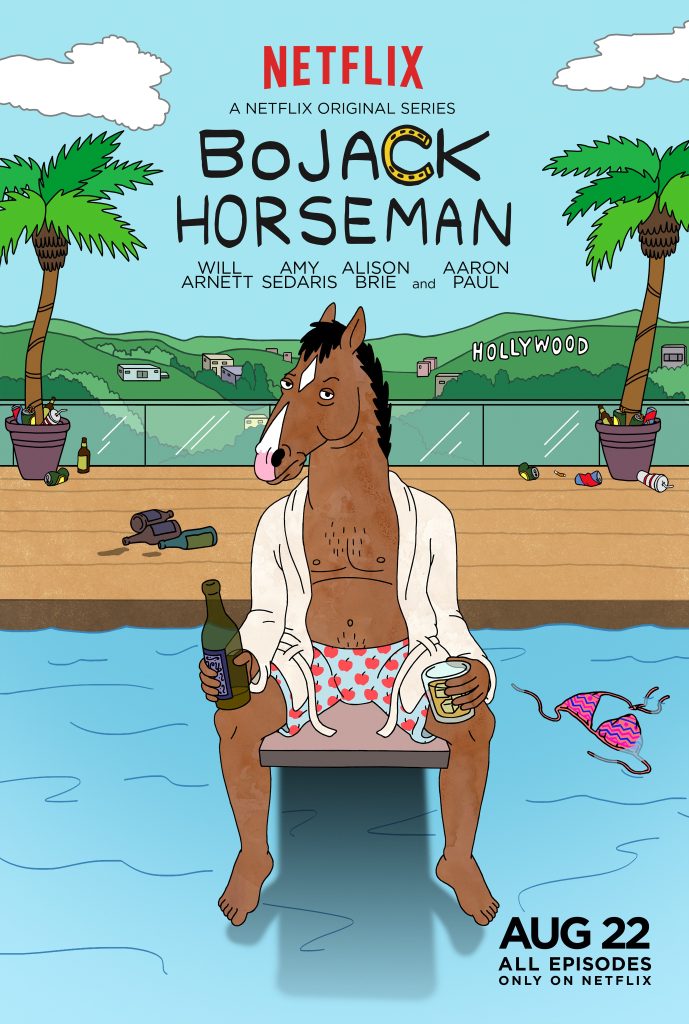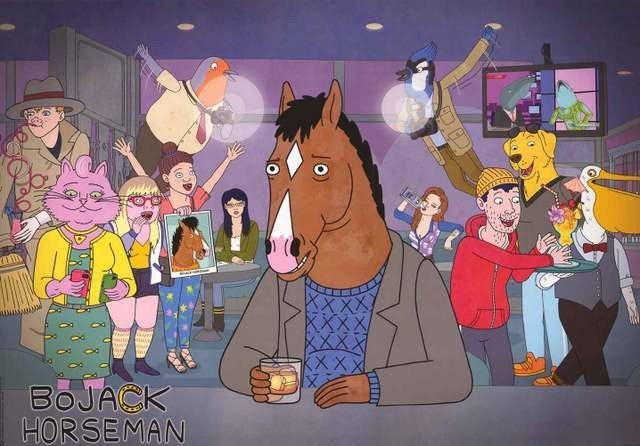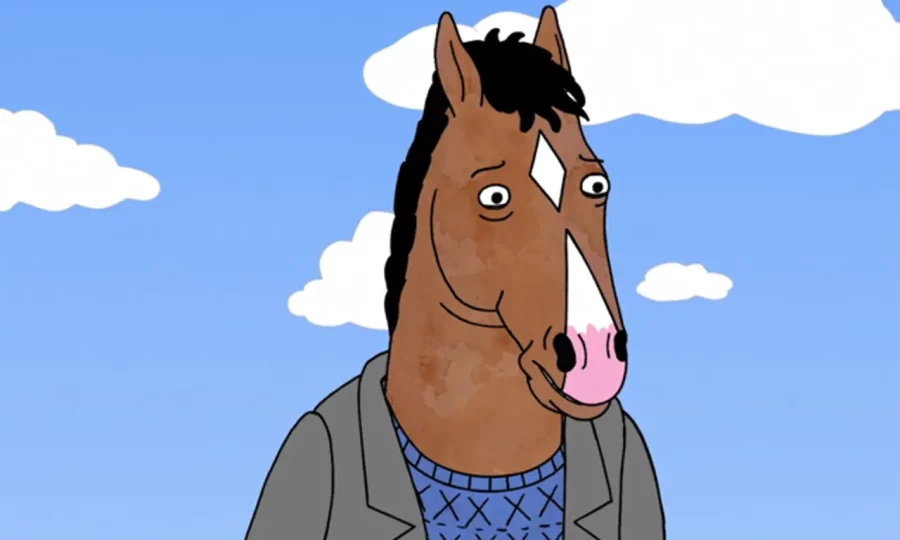
An alcoholic, sexist, bitter and narcissistic horse which has every opportunity imaginable but can’t find happiness.
That’s Bojack, the main character in the Netflix series called “Bojack Horseman”. The series portrays everything else than the glamourized class and representation we usually see in comedy dramas which often send a clear consumerist message and tell us which lifestyle defines us. Instead of a healthy happy male lead, misogynistic humour and female side characters, the Series shows a complex exploration of depression and unhealthy coping mechanisms featuring many female leads. Nevertheless, it won multiple awards and got incredibly high streams as well as outstanding critiques and ratings.
Does this prove the critics Adorno and Horkheimer, who associate culture industry with late capitalism and state that goods are created focusing on profits as well as controlling and categorizing the society, wrong?
Bojack Horseman isn’t the usual TV drama with a predictable ending and bubbly characters. Each character brings its baggage and after the first couple of episodes, the viewer catches onto it not being a glamorized portrait of some LA celebrity. While Adorno and Horkheimer say that the culture industry means, TV shows are predictable and the consumer knows how it will end based on the first note of the song, I think that Bojack is the perfect example of their theory having its flaws, at least in this day and age. It has only been recently, that we consumers crave content that is relatable and gives us comfort, in the case of Bojack Horseman this is different to each individual. While one person relates to Bojack, someone will relate more to his assistant or friend. Due to its complexity, there are endless ways of perceiving the series and feeling connected to it. Having said that, in 1994 when Adornos and Horkheimer’s Theory about the culture industry was published, the world was looking very different and the TV productions were focusing on selling a dream rather than the harsh reality and authenticity.

Thus, I think their critique is old-fashioned and can’t be connected to today’s media. As shown by the example of Bojack the Horseman, our society nowadays prefers and enjoys media that isn’t distracting from problems, in contrast, is underlining those. This doesn’t only apply to TV series but in addition, is also seen on social media platforms. Politics are being shared across all socials and upcoming influencers tend to have a more relatable identity and share their flaws. Our options for absorbing culture are therefore not only very different from the ones in the early nineties but also very customizable and in my opinion way less capitalistic. It depends more on the consumer rather than the Media or TV show whether this is an alcoholic, sexist, bitter and narcissistic horse or a happy almost unrealistic portrayed man.


Great post! You’ve given me a lot to think about regarding “Bojack Horseman” in light of Adorno and Horkheimer’s ideas. Here’s a thought: while “Bojack” feels fresh and different, could it be seen as the new face of the culture industry? Adorno believed that culture becomes a product that we consume rather than engage with. Even though “Bojack” is unique, it’s worth pondering if its success is still the industry commodifying our current societal feelings. The entertainment industry can take our emotions or societal issues and turn them into sellable products. For example, if society is feeling disillusioned or cynical, a show like “Bojack,” which taps into those feelings, may be produced and become popular. It’s as if the industry is packaging and reselling our own emotions. I would love to hear your thoughts.
I think that consumerism, which is dominated by the capitalist world order, has a magical power: it can commodify everything and use it to make a profit. For example, ≈љi≈Њek, one of the most famous contemporary critics of capitalism, has made his writings critical of capitalism a commodity of the consumerist society, and even his own image has become a commodity through cartoonisation. Thus, after the popularity of the anti-circumstance works, the “anti-circumstance” itself will become a profit-making circuit.
This was an amazing read! I love that you’ve added references from pop culture in today’s age to link to the Culture Industry. You are right when you mention that in 1994 the world was very different in terms of technology and the access we have to TV shows has changed so quickly in such a short amount of time. Do you still think that even though TV shows have become more accessible, the principles of the Culture Industry theory still apply?
This blog is a great example of how media can be used to discuss important topics! Does an excellent job of breaking down the complexities of the culture industry and its effects on people while also providing thoughtful insight into Bojack’s character. It also offers a balanced view to form their own opinions about the subject matter. Additionally, it provides useful information for further discussion, which makes it an invaluable resource for anyone interested in this topic!
I think the theories of the humanities and social sciences, or assertions in the field of the humanities and social sciences, usually address the vast majority of cases. Humanities and social sciences are different from mathematics and physics in that their theories cannot be applied to all examples, but they are useful as references from a holistic point of view.